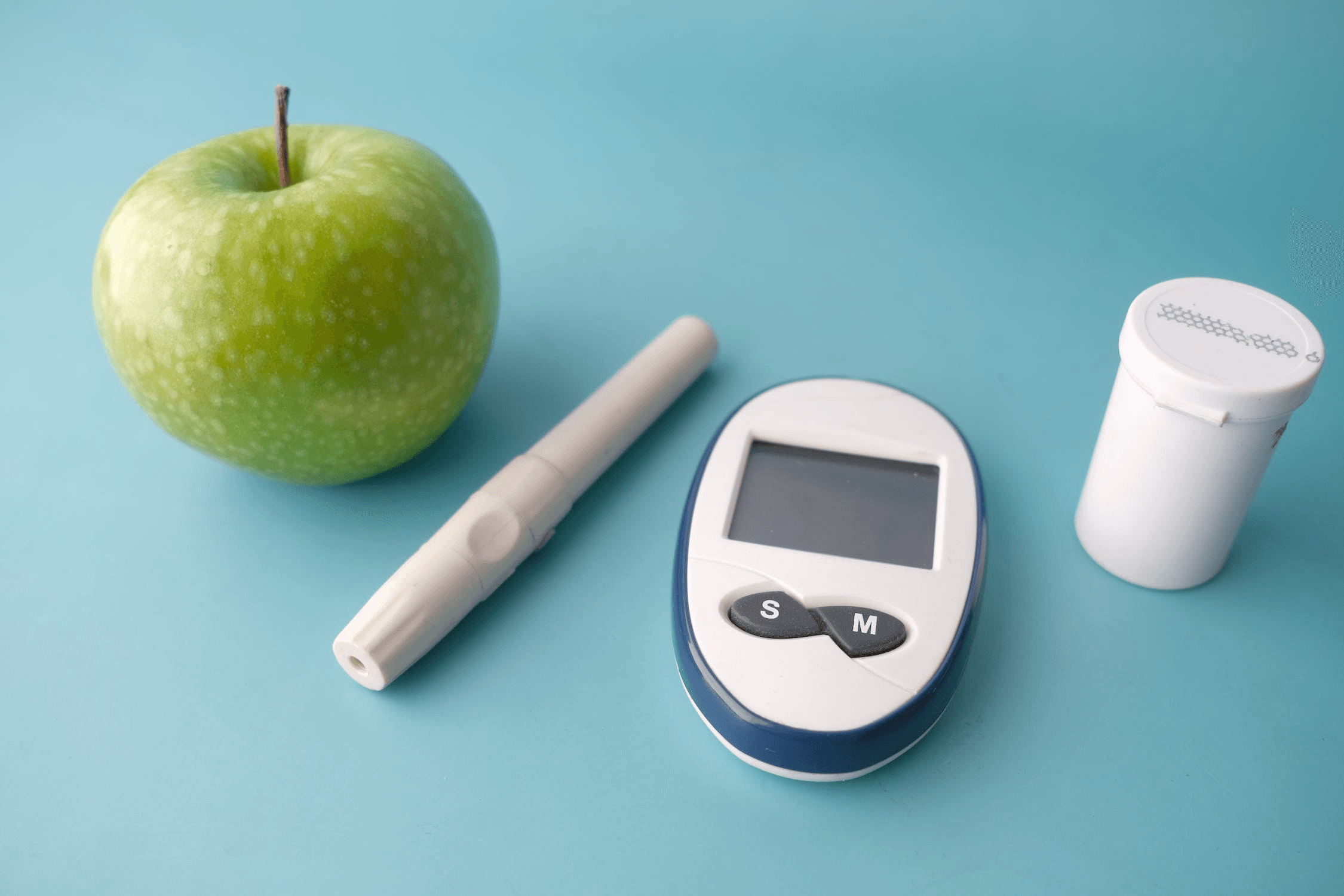Hey! Your blood sugar level is a reflection of your health (you might want to read that again).
Think of a mirror. What you see is a reflection of yourself, right? In the same vein, your blood sugar level is a pointer to what's going on in your body and should not be taken lightly.
Curious? Sit back, relax and enjoy this read.
What Is Blood Sugar?
Blood sugar, or glucose is the amount of sugar found in your blood.
When you eat carbohydrates, they are broken down into the simplest form possible. This is called glucose. Glucose is your body's main source of energy and is transported to various cells for use. From the muscles, to heart, and brain, glucose is needed for maintenance of physiological processes in different cells.
However, blood glucose concentration can either be too high (hyperglycemia) or low (hypoglycemia).
Too much blood sugar (Hyperglycemia)
Hyperglycemia: refers to blood sugar level above the standard range. Associated with metabolic diseases such as diabetes mellitus, hyperglycemia is not your friend. This condition is dangerous and damages vital organs in the body, including the heart, kidney and brain.
It usually occurs when your body produces little insulin (a hormone that reduces blood sugar), or when it can't use insulin properly.
What causes hyperglycemia?
Hyperglycemia can be caused by:
- Poor eating habits: Skipping meals, consuming junk and not eating healthy are all bad for you. These habits alter your blood sugar level, predisposing you to life threatening ailments. Junk foods contain high amounts of fat, sugar, salt and processed carbohydrates. These are all associated with increased blood glucose.
- Physical inactivity: Researchers have found that physical inactivity causes high blood sugar levels. According to a study, "A single bout of moderate exercises can improve the way the body maintains glucose homeostasis( blood glucose regulation) but being inactive disrupts glucose metabolism".
- Stress: Stress preciptates the release of the hormone, 'cortisol'. Cortisol makes fat and muscle cells resistant to the effect of insulin. It also enhances the production of glucose by the liver, increasing blood sugar.
- Medications: Certain drugs such as thiazide diuretics, beta blockers and amiodarone cause hyperglycemia as a side effect.
What are the symptoms of hyperglycemia?
Here are the most common signs;
- Frequent urination
- Excessive thirst
- Tiredness
- Recurrent infections
- Numbness and tingling
Too little blood sugar (Hypoglycemia)
This refers to blood sugar level below the standard range. Hypoglycemia is just as deadly because, in this state your cells are starved of glucose and begin to malfunction.
What causes hypoglycemia?
Hypoglycemia is often associated with diabetes treatment. However, a variety of factors are responsible for causing low blood sugar. They include;
- Excessive alcohol drinking: Heavy drinking inhibits the release of glucose from glycogen stores in the liver. Glucose is responsible for increasing blood sugar levels. When it is inhibited, blood sugar is reduced in turn.
- Starvation: When you don't eat enough food and your glycogen stores are used up, hypoglycemia occurs.
- Insulin overproduction: Insulinoma, a pancreas tumor, causes an overproduction of the insulin hormone. Remember, insulin is responsible for reducing blood sugar levels. Therefore, when a large amount of insulin is produced, the blood sugar level drastically reduces.
- Other conditions: These include cirrhosis, hepatitis, kidney diseases and adrenal and pituitary gland disorders.
What are the symptoms of hypoglycemia?
They include:
- Headache
- Hunger
- Fatigue
- An irregular or fast heartbeat
- Dizziness or lightheadedness
- Difficulty in concentrating
- Confusion
- Blurry vision
Should I be concerned about my blood sugar level?
Too little or too much blood glucose isn't good for your health. It can cause complications such as nerve damage, cardiovascular impairment, metabolic disorders, renal diseases, eye defects and even death. You should be concerned about the level of your blood sugar and make sure it is always within the standard range.
What Is The Normal Blood Sugar Level?
According to World Health Organization (WHO), fasting blood sugar concentration between 70 mg/dL (3.9 mmol/L) and 100 mg/dL (5.6 mmol/L) is normal. Fasting glucose level between 100 to 125 mg/dL (5.6 to 6.9 mmol/L) is described as prediabetic. If fasting blood glucose is 126 mg/dL (7 mmol/L) or higher on two separate tests, diabetes is diagnosed.
On the other hand, individuals with fasting blood lower than 70 mg/dL are referred to as hypoglycemic.
Have you checked your blood sugar level? When last did you check it? Book an appointment with your healthcare provider today!
